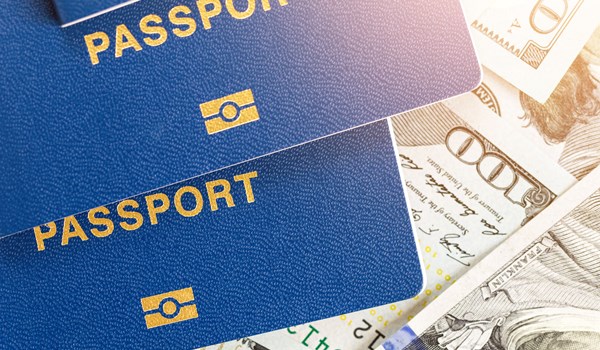Jurisdictions
Regions
Industry Sectors
30/10/20
EUROPE: Bulgaria’s ‘golden passports’ scheme bring little investment, according to investigation.

As published on euractiv.com, Friday 30 October, 2020.
Bulgarian citizenship has been available for sale for eight years now, but the scheme hasn’t brought any significant foreign investment into the country, a journalistic investigation by EURACTIV Bulgaria has found.
On 22 October the European Commission officially urged Bulgarian authorities to end the investor citizenship schemes also referred to as “golden passport” schemes. Cyprus and Malta are the other EU countries selling passports.
While the Commission launched infringement procedures against Cyprus and Malta by issuing letters of formal notice, the Bulgarian government was given one month to reply to the letter of the Commission requesting further information, following which the EU executive will decide on the next steps.
Nevertheless Boyko Borissov’s government has no intention to stop selling EU citizenship.
At present foreigners can obtain a Bulgarian passport if they invest one million leva (€500,000) in a Bulgarian company which implements a priority project for the state. The other option is to have resided legally on Bulgarian territory for one year and to having made an investment of two million leva. Buying government securities counts as an investment.
An investigation by EURACTIV Bulgaria shows that Bulgarian citizenship has been available for sale for eight years now, but has not brought any significant foreign investment in the country. The “profits” are dubious, while the risks of infringement, and of opening the EU doors to fraudsters, are significant.
98 foreigners from countries outside the EU have bought Bulgarian passports. The data were provided to EURACTIV by the Presidency of Bulgaria through the Access to Public Information Act.
The scheme was launched in 2013, when the Bulgarian Citizenship Act introduced the possibility to buy citizenship against investment. “Golden passports” started being sold in 2016 during the second government of Boyko Borissov.
In the summer of 2019, the then Chief Prosecutor Sotir Tsatsarov presented an analysis stating that the Bulgarian economy had not benefitted from the “golden passports” scheme. Tsatsarov’s position came as a reaction to the European Commission’s report, published several months earlier. The EU executive was the first to note the numerous bad practices in the Bulgarian golden passports scheme and the lack of transparency within the procedure. Immediately after this report, the Ministry of Justice proposed that the passport sale scheme be scrapped though this has not happened.
Last year the State agency for National Security conducted checks on the funds allegedly invested in the country from the investors with golden passports. This led to a request for revocation of citizenship for several people – a Russian, three Egyptians, a Pakistani and a Jordanian. They acquired citizenship by buying government securities, but sold them as soon as they received their new passports.
Tsatsarov, too, asked that the scheme be terminated. So far this year, at least four foreigners received Bulgarian citizenship after investing in securities that can be sold immediately.
The scheme is attractive to citizens of the Russian Federation, the Middle East and North Africa, sources told EURACTIV. However, the Bulgarian authorities have rejected all journalistic requests for information on what investments have been made and on the origin of the 98 people who obtained “golden passports”.
Fresh data from the Bulgarian National Bank show that the “investors” have not spent much in the economy. In the last four years, direct investment in the country has come mainly from the EU, whose citizens do not need a Bulgarian passport. The main Russian investments are focused on the energy sector and real estate.
Investors in the energy sector do not need Bulgarian passports, and buying a property on the seaside has little value for the national economy. In some cases buying real estate involves money laundering.
The Bulgarian National Bank data for the last year show that foreign direct investment in the country amounted to €1.138 billion. Most of that come from the United Kingdom (€360 million), the Netherlands (€330 million), Austria and Luxembourg with €110 million each), and Germany (€109 million). Investments outside the EU come from Russia (€121 million), Switzerland (€55 million), Kazakhstan and the United States with €10 million each.
By the end of September this year, 21 foreigners had bought Bulgarian passports for investment, and their investments can’t be seen into the data cited. Most are investments in government securities, not in the real economy.
Despite the Commission’s criticism and the lack of benefit for the economy, the government intends to keep the scheme. On Tuesday, the parliamentary committee on legal issues adopted amendments to the Bulgarian Citizenship Act, which slightly modifies the procedure for the sale of citizenship. It is forbidden to issue a passport against a short-term investment, for example in government securities. The draft law is yet to pass a vote on second reading.
The candidates for passports are subject to inspection by the State agency for National Security and the Interior Ministry. They so far have failed to convince Brussels – and anyone for that matter – that they are doing a good job.



